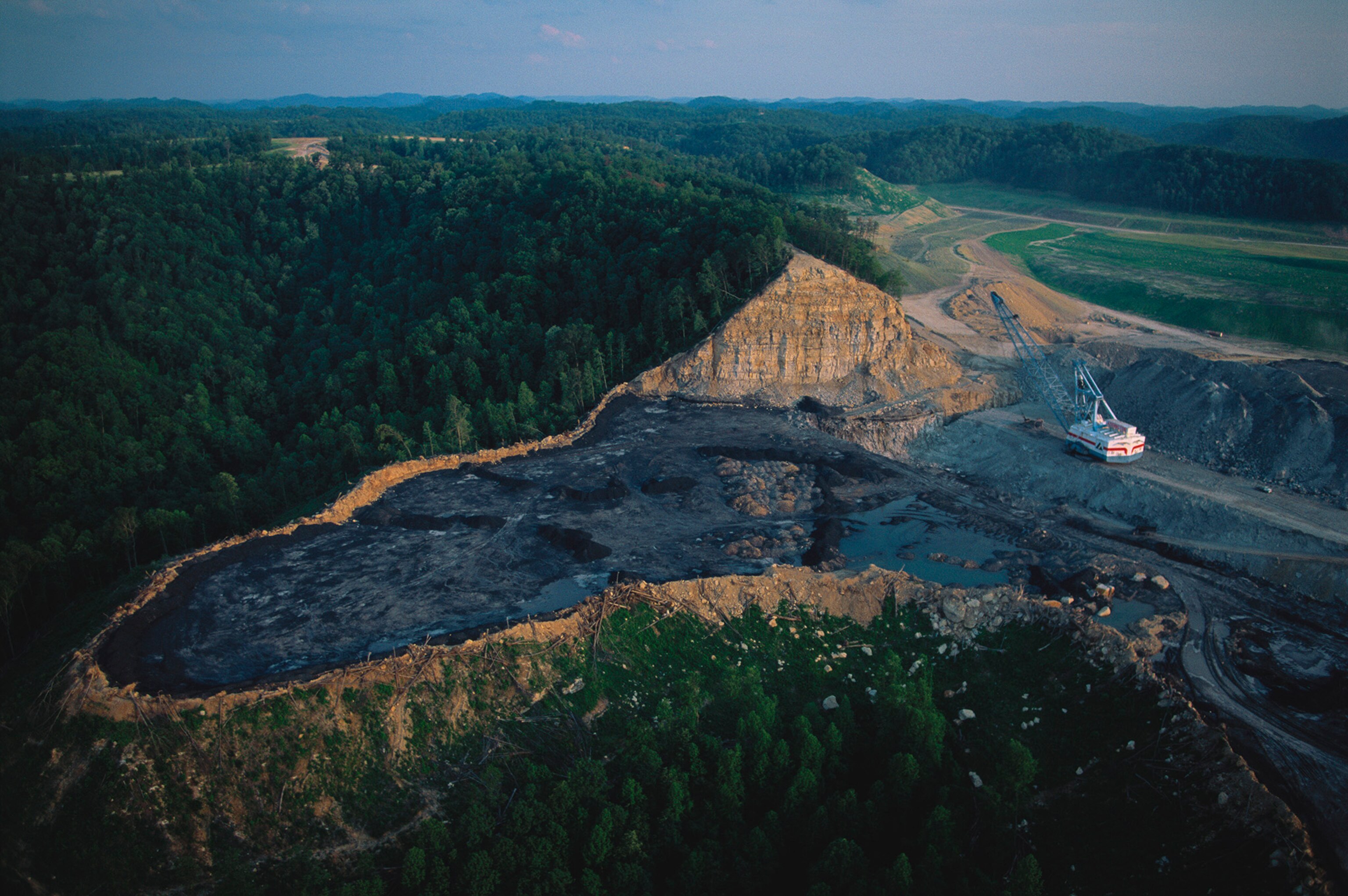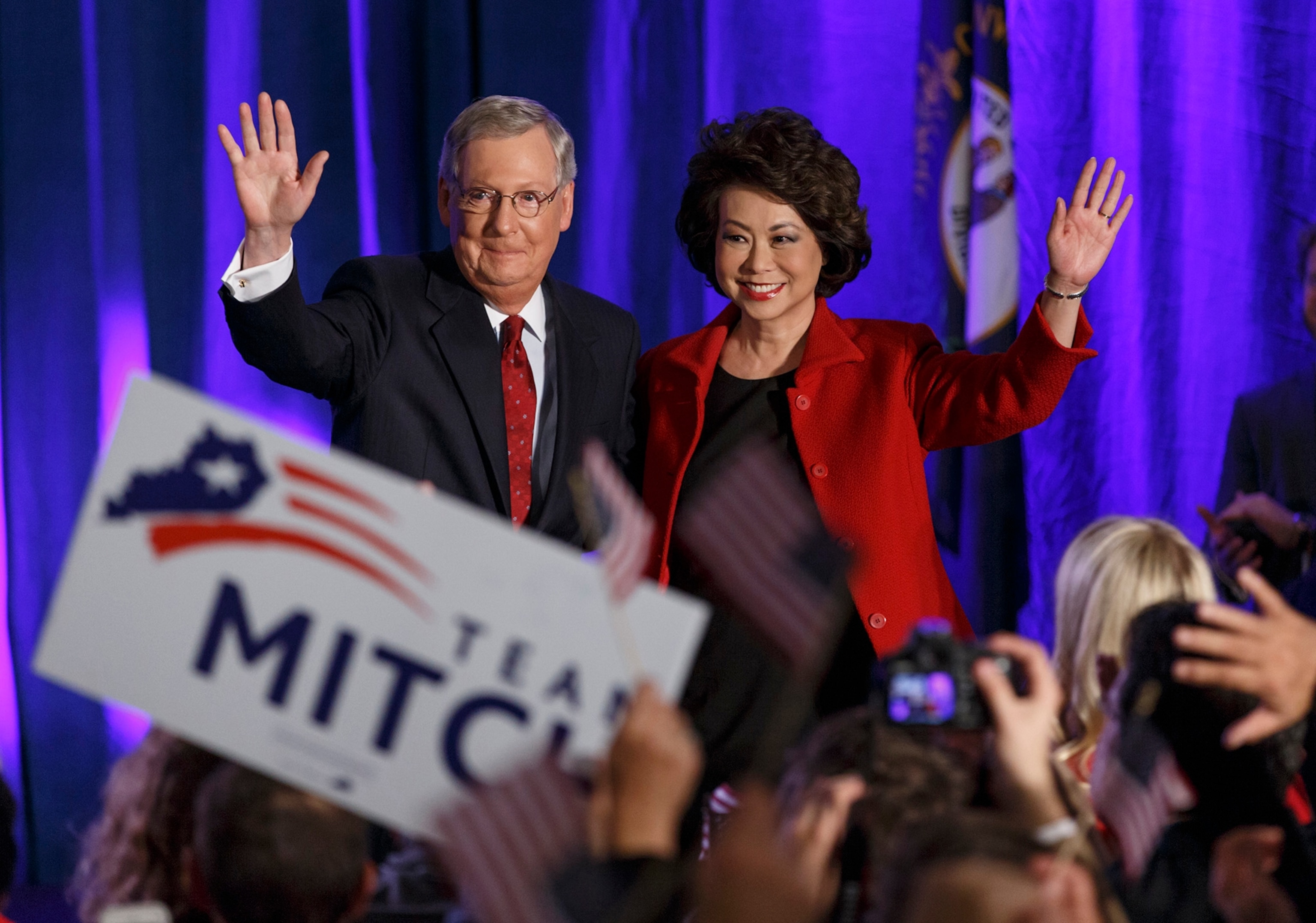
Election Results Make U.S. Congress Action on Climate Change Even Less Likely
Kentucky Republican Mitch McConnell, who will lead the Senate, emphasizes coal-mining jobs over warnings from scientists.
In the green hills and gray hollows of Kentucky's well-mined mountains, the economy of extracting coal from the fuel-rich ground isn't what it once was.
Yet Mitch McConnell, a longtime senator poised to become majority leader of the U.S. Senate in a Congress that will be fully controlled by his Republican Party come January, has found political fortune in those hills. He successfully campaigned for reelection there with warnings about a "war on coal" he accuses Democratic President Barack Obama of waging. This helps explain what the United States won't be doing about global warming in the near future. (Read more about how the midterm election results may intensify the battle over clean energy.)
An alignment of the newly empowered McConnell and fellow Republican leaders—who either openly doubt scientists' findings that human industry has heated the planet, or contend that curbing carbon emissions into the Earth's atmosphere isn't worth the potential cost of lost jobs—is likely to create the most hostile political environment ever for addressing climate change in Washington.
The outcome of Tuesday's elections will provide McConnell's party a solid blockade against Obama, who already has turned to executive action to order new emissions standards for power plants when he could not win enough congressional support even with Democrats running the Senate.
McConnell's own opposition stems in part from the electoral support he derives from rural voters in Kentucky, where one-quarter of all counties still mine coal—even as jobs in the industry are vanishing. (Related: "Can Coal Ever Be Clean?")
"A war on coal is a war on all of Kentucky," McConnell said this fall, crediting the low-cost fuel for powering his home state as he campaigned through coal-mining Harlan County in the highest mountains of eastern Kentucky. "Ninety percent of our electricity, very low-cost electricity, comes from coal-fired generation. That's how we attract business."
A preponderance of scientific evidence has recorded surface warming, polar ice cap melting, sea levels rising, and heat waves intensifying around the world. (Related: "Rising Seas.")
The United Nations' Intergovernmental Panel on Climate Change, in its latest accounting of impending global danger, reported last weekend in Copenhagen that "human influence on the climate system is clear." Each of the past three decades has been warmer than any decade since 1850, when modern record keeping began, the IPCC said, adding that "most of the increase has been caused by people burning fossil fuels."
The IPCC report warns of "irreversible impacts globally'' by the end of the 21st century, such as heat that will render some places uninhabitable for humans, the extinction of many plants and animals, and a collapse of the West Antarctic Ice Sheet, which could result in difficult-to-imagine rises in sea level of 10 to 13 feet (3 to 4 meters).
"Science has spoken," UN Secretary-General Ban Ki-moon said with the report's issuance. "There is no ambiguity in their message."
The Obama Administration's National Climate Assessment reported this year that most of the past 50 years' warming "can only be explained by the effects of human influences." It called electrical power plants the "single-largest concentrated source of emissions" in the U.S., "accounting for roughly one-third of all domestic greenhouse gas emissions." About two-thirds of electricity generated in the U.S. comes from fossil fuels, 39 percent from coal-burning plants.

A New Assault on the EPA?
In the politically divided U.S. Congress, however, action on climate change has been stifled by economic concerns and partisan sniping.
Republicans and Democrats alike from coal states have blocked "cap and trade" legislation aimed at setting limits on polluters while permitting them to sell pollution "credits" to others. Democratic Senator Joe Manchin of coal-mining West Virginia raised a rifle in one 2010 campaign commercial, took "dead aim," and shot a copy of the cap and trade bill.
So Obama has imposed regulations on his own, through executive orders. In June, his Environmental Protection Agency issued rules requiring each state to devise plans for cutting carbon emissions from power plants.
"There was bipartisan opposition to the president's unilateral regulatory assault before the election—there will be after the election as well," McConnell spokesperson Don Stewart says. "Remember, what the president is trying to do couldn't pass a Democrat-led Senate."
McConnell will hold power over what legislation reaches the Senate floor, and so will be positioned to stall any effort to impose restrictions on businesses aimed at curbing climate change or to advance legislation that could thwart the president's regulatory actions.
While campaigning this year for his sixth six-year term in the Senate, McConnell pledged to slash the EPA's budget.
In a Republican-run Senate, McConnell "will draw very sharp lines on climate change," says Norman Ornstein, senior fellow at Washington's American Enterprise Institute. Ornstein predicted that McConnell will use budgetary processes "to eviscerate the EPA."
Among Republican congressional leaders and lawmakers eyeing the party's nomination for president in 2016, it's common to adopt McConnell's often-repeated take on climate change: "I am not a scientist."
Speaker John Boehner, the Ohio Republican who leads the House of Representatives, has said: "Listen, I'm not qualified to debate the science over climate change ... But I am astute enough to understand that every proposal that has come out of this administration to deal with climate change involves hurting our economy and killing American jobs."
Representative Paul Ryan of Wisconsin, the party's 2012 vice presidential nominee, was asked in an election debate whether human activity is responsible for climate change. "I don't know the answer to that question," Ryan replied. "I don't think science does, either."
That's a sentiment echoed by Florida Senator Marco Rubio, another potential contender for the White House in 2016. "I do not believe that human activity is causing these dramatic changes to our climate the way these scientists are portraying it," he told ABC News in May.
Jeb Bush, a former Florida governor from a family of presidents, appears to be calculating his stance on climate change as he prepares to declare whether he will run for president in 2016. Bush generally is viewed as more moderate than other potential contenders such as Rubio, but he too has expressed skepticism about science's conclusion that man's actions have escalated global warming.
Democrat Hillary Clinton, former secretary of state, hews closest to Obama among leading prospective 2016 presidential candidates. At a National Clean Energy Summit in September, she called global warming "the most consequential, urgent, sweeping collection of challenges we face as a nation and a world." She held out natural gas production as "cleaner than coal," but cautioned that "smart regulations" are needed for high-risk drilling.
In Kentucky, It's About Jobs
Most of the American public has accepted scientists' findings on climate change.
The Washington-based Pew Research Center found 61 percent of the public agreeing that solid evidence shows the Earth's average temperature has increased over the past few decades. Among them, 40 percent agree this is being caused by human activity.
Still, Americans remain less convinced than others. A global survey by Great Britain's Ipsos MORI reported 54 percent of Americans calling climate change largely a result of human activity. In England and Australia, 64 percent said so. In Germany it was 72 percent, in France 80 percent, and in China 93 percent.
Yet in a nation still recovering from the worst recession since the Great Depression of the 1930s, politicians find traction in warning that governmental regulation—on climate change, or just about anything else—might cost jobs.
McConnell defense of coal resonates in Kentucky's economically troubled coal-mining hills, where employment has only recently ticked upward after a decline in mining. Coal production in eastern Kentucky fell last year to its lowest level since 1962—down 70 percent from its 1990 peak—according to the Kentucky Environment and Energy Cabinet and Kentucky Coal Association. The region has lost 7,000 jobs since mid-2011.
The Kentucky Coal Association has attributed the "precipitous drop" in mining to competition from booming natural gas production and cheaper coal mined in other parts of the country, namely Wyoming. Kentucky's easily reachable reserves have been depleted after a century of mining, and increasing federal regulations aimed at protecting air and water quality are viewed by many Kentuckians—and McConnell—through the lens of diminishing jobs.
In Harlan County, home to 45 coal mines, the second most in the state, the unemployment rate was 11.4 percent in September-down from 19 percent in 2013, but still well above the national average of 5.9 percent.
McConnell, addressing the Cincinnati Enquirer's editorial board this year, said of Obama's regulations: "It strikes me from at least our point of view, from a Kentuckian, Midwestern point of view, it's all pain for no gain, even if you believe this is a cause that needs to be pursued."